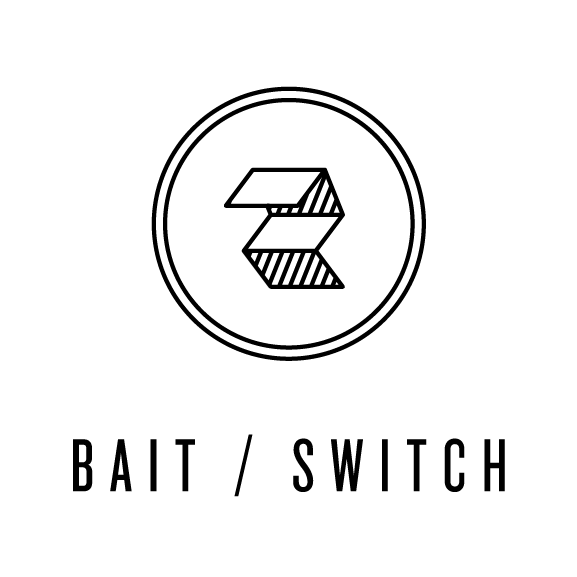Thinking Of Our Planet & Rilke
Sarah Dickenson Snyder
When a lighthouse breathes fire
and fireflies speak,
when buildings become skeletal
and ships nearly sink,
will we change?
When fruit flies and maggots emerge
from what’s left overripening to rot,
who’s stepping up to deal with that mess?
Earth is not a cadaver yet;
yes, some of us are drowned
some burned and thirsty,
all of us part of a wound
that needs healing.
Don’t wait for the arc
of glistening dove wings
or a small cascading song
to follow. We know
we must change our lives.
“I’m not good with a blank page and endless time.”
Interview by C. VanWinkle
September 18, 2022
Would you please start by describing the prompt that you responded to?
It's a painting that's in a really interesting shape. It looks like a found shape somewhere. It almost looks like it's painted on metal, but I can't really tell for sure. It's in these really bright colors and it's cartoonish in that it's got a bug that's saying, “Why are humans so messy?” It’s got this building with light or fire coming out of it, and a sea that looks very polluted. The sky seems smog-filled and there are some skeletal buildings in the back that look crumbling and dilapidated. And there’s a ship that looks like it’s about to sink or tip over. To me, it’s a sort of dystopic picture of how the humans have trashed the planet, with a little insect asking why.
How did you get started?
I started like I start all my writing. I grab my journal and set a timer. I'll go scour some poetry books and give myself a word bank of around 10 to 15 words that I want to incorporate. This is the way I produce. I need structure and a time variant to just get something out on the page. I'm not good with a blank page and endless time. So that's what I did. I got moving on this and then played with it. I spent probably three hours on it. I do the timing thing for about 10 minutes and then I start playing with that. Once I have enough interesting language, I do my second favorite part. I open up a Word document and I press that little microphone icon at the top. Then I just speak what I have on the page onto the document, which just gets the language onto the page. It’s not in any form. It comes out in a sort of fragmented prose paragraph. And then I start messing with it, having fun moving stuff around, seeing what works or sounds interesting to me, what surprises me… That's what I'm always looking for: Where am I surprised by this? For this poem, what really surprised me was how it felt like the Archaic Torso of Apollo, the poem by Rilke. The ending of that poem is just so cool. In some ways enigmatic, in some ways inevitable, and perfect. Then I started to weave some of the language from it into this poem. I just lost myself for about three or four hours making this.
How much of Rilke’s language did you integrate?
It’s such a gorgeous poem. He had ‘ripening,’ so I used ‘overripening.’ He had ‘cascade,’ I think he had ‘glisten.’ T.S. Eliot said, “Good writers borrow, great writers steal.” I'm stealing all the time. “You must change your life” is the end of his poem, and by titling my poem “Thinking of Our Planet & Rilke,” it's clear that I'm stealing from him.
You put some really great, descriptive words in there! I'm not familiar with “The Archaic Torso,” but is that where you found ‘cadaver’ and ‘maggots?’
No, ‘maggots’ wasn't in there, but ‘cadaver’ was. I actually put ‘cadaver’ in my piece, and took it out, put it in, took it out, and ultimately just kept it in. I decided that it does work here. You know, we're not dead yet. Let's save us. We can do a little CPR right now.
I agree. It doesn't have to be too late. Let’s see… How does this piece relate to the rest of your work?
It's the process of how I write. I love ekphrastic work, it's so fun. And that's what we do at Bait/Switch. If you're a writer, you're looking at something that's not writing and responding to it, right? As a writer myself, and then as a writing teacher for 38 years, I found that the way to get kids to write, the way to get me to write, is to set some guardrails. Just a few. It's like that wonderful truth that without structure, there can be no creativity. If I have variables that I have to stick to, then I can actually be more creative inside the box of what I'm writing. I need to allow myself to be surprised.
I was really trying to mimic the imperative voice here. I didn't want to be didactic, but the end says: don't wait, we have to do this. This imperative voice is not usually my voice in a poem. I'm usually more equivocal, like “Should we or shouldn't we?” or “Maybe I remember that, maybe I don't.” Something else I really love using in poems is anaphora, like with the word “when” in the beginning. You know, “When a lighthouse,” “when buildings,” “When fruit flies…”
Oh that’s great, I just learned a new word. This is the second piece you’ve written for Bait/Switch, isn’t it?
Yes, and the other one was a triptych. One part was about my sister's fabric, and I think one was about an image that you’d see in a science book. They were like vignettes, I think.
And there were babies and the cosmos and the circle of life. It got rather epic and sweeping. And in this piece, you’re laying down some harsh truth for all of humanity. They’ve both got this grand scale. Do you ever just want to describe snow?
Yeah, I love doing that. But I don't know, there has to be something surprising in it for me. I definitely do just describe something, but often it leads me someplace. I love leaps in poems.
I am enjoying your work because it surprises me. Do you like working from a prompt?
I really do. I'm a prompt addict.
No wonder you like us so much!
It's true! Do you know “The Common,” the Boston literary magazine? They offered maybe 10 weeks of prompts for some very nominal fee, like $75. And gosh, it was fun to receive them and play with them. As a teacher, I would always have three prompts on the board when the students walked in and that's how they would spend the first 10 minutes of class. They didn't have to use them, but they were there in case they needed a nudge.
I like that you are so structured. You like a prompt, you like parameters, you like a time constraint. Is that just for your creative life or is that you in general?
That is me. I'm not good at following recipes, but if you give me crushed ginger, cilantro, shallots, and some shrimp, I know what I want to do with them. You know what I mean? I don’t want anyone telling me what to do too much; I'm not a good rule-follower in that way. But I do like parameters.
Do you write about ecology a lot? Is that an important issue for your writing?
I do. I have a new book coming out soon, and yeah, there are some definite ecopoems in it. Generally, people are more my thing. I write more narrative pieces than ecopoetry, but I do write some. I feel very strongly about our planet, about trees, about the power of nature. One of the reasons why I can write is just because of where I am. I'm amid trees on top of a mountain. I believe in our planet. I love our planet.
It's my favorite planet.
Mine too!
So why are humans so messy?
Because we’re so greedy and needy and selfish. We come out of the womb that way. We can't help our little selves, we’re so hungry. And I think that hunger changes pretty quickly into, for some people, money. That unfortunately ends up devastating the world in so many ways. If we didn't have such hunger for money, I think that the world would be a better place.
I absolutely agree with that. Sometimes I think about the idea that nobody thinks they're the bad guy. Even the people who I think are pretty irrefutably *the problem* don't see themselves that way. It's tempting to say, “Don't be so greedy!” But nobody thinks they're being greedy. Everybody's the hero of their own story.
Absolutely. And the people who are doing the most damage to our planet are people here in the United States. I'm including myself in this too, obviously. I have a car. I have a pickup truck, too. Sure, I recycle. I take my recyclables to the dump every week or two and I compost. But I'm a contributor!
We all have ways that we are trying and we all have ways that we could do better.
Yes.
Now that you have worked on this project twice, what is your advice for a first timer?
I think you said this to me, but I always feel this way: have fun with it. And, you know, did I love the pieces of artwork that I worked on? Would I buy that and put that in my house? I don't know, but I loved having to do it. I made myself remember that this is fun. So I guess my biggest advice is to have fun with it. Also, really give yourself time to dive into it. Not just minutes, but hours, to see what you can figure out. Let something get figured out, as opposed to just responding to it.
That might relate to what you said about surprising yourself.
Yeah. That's a Robert Frost quote, by the way. “No surprise for the writer, no surprise for the reader.” And I think that's so true about any art, really. If a visual artist isn't surprised by what they uncover, if they're completely in control of it, if they know exactly where they're going and they're painting by number, then it won’t have something that’s going to pop when somebody looks at it. I don't think that the artist who made the piece that I responded to knew where they were going.
And that's the fun: you don't know what they were thinking until you read their interview!
Call Number: C79VA | C82PP.snyThi
Sarah Dickenson Snyder has written poetry since she knew there was a form with conscious line breaks. She has three poetry collections, The Human Contract (2017), Notes from a Nomad (nominated for the Massachusetts Book Awards 2018), and With a Polaroid Camera (2019). Recently, poems appeared in Rattle, Lily Poetry Review, and RHINO. Sarahdickensonsnyder.com



